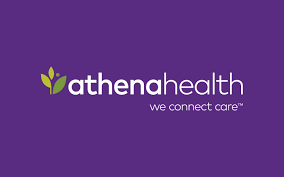Meaningful Use
See the following -
What If EMRs Worked Like Wikipedia?
I’ve been thinking about EMRs, electronic medical records, lately. It’s a subject, despite some professional experience, I don’t feel particularly close to...And, as a patient I see them largely as an opaque blob of data about me with a placating window in the form of a portal.
- Login to post comments
10 Steps to Achieving Interoperability
When nine organizations -- several of them health IT vendors -- urged Congress in a Dec. 7 letter to resist delaying Stage 3 of the Meaningful Use EHR Incentive Program, the plea came with an outline for strengthening interoperability. "What is clear to us is that current requirements and pace of the Meaningful Use program have taken away time and valuable resources from fixing our nation's interoperability problem, the organizations -- Apervita, athenahealth, Intel, National Alliance on Mental Illness, New Directions Technology Consulting, Oracle, United Spinal Association and Verizon -- wrote in their letter to Congressional leadership...
- Login to post comments
A Consulting Firm Transition to Open Source Health Software (Part 2 of 2)
 The best hope for sustaining HLN as an open source vendor is the customization model: when an agency needs a new feature or a customized clinical decision support rule, it contracts with HLN to develop it. Naturally, the agency could contract with anyone it wants to upgrade open source software, but HLN would be the first place to look because they are familiar with software they built originally. Other popular models include offering support as a paid service, and building proprietary tools on top of the basic open source version (“open core”). The temptation to skim off the cream of the product and profit by it is so compelling that one of the most vocal stalwarts of the open source process, MariaDB (based on the popular MySQL database) recently broke radically from its tradition and announced a proprietary license for its primary distinguishing extension.
The best hope for sustaining HLN as an open source vendor is the customization model: when an agency needs a new feature or a customized clinical decision support rule, it contracts with HLN to develop it. Naturally, the agency could contract with anyone it wants to upgrade open source software, but HLN would be the first place to look because they are familiar with software they built originally. Other popular models include offering support as a paid service, and building proprietary tools on top of the basic open source version (“open core”). The temptation to skim off the cream of the product and profit by it is so compelling that one of the most vocal stalwarts of the open source process, MariaDB (based on the popular MySQL database) recently broke radically from its tradition and announced a proprietary license for its primary distinguishing extension.
- Login to post comments
A Health Hack Wake-Up Call
Hospitals went digital almost overnight, but they neglected to prioritize patient data protection. U.S. hospitals appear to be under a new type of IT hacking attack: crypto-ransomware. Hackers have changed their approach and instead of stealing patient data, they are now locking down the computer systems of hospitals and asking for a ransom, in bitcoin, in order to allow hospitals to have access to their own computers...
- Login to post comments
Accessing & Using APIs from Major EMR Vendors–Some Data at Last!
 Information blocking, Siloed data. No real inter-operability. Standards that aren’t standards. In the last few years, the clamor about the problems accessing personal health data has grown as the use of electronic medical records (EMRs) increased post the Federally-funded HITECH program. But at Health 2.0 where we focus on newer health tech startups using SMAC (Social/Sensor; Mobile OS; Cloud; Analytics) technologies, the common complaint we’ve heard has been that the legacy–usually client-server based–EMR vendors won’t let the newer vendors integrate with them...
Information blocking, Siloed data. No real inter-operability. Standards that aren’t standards. In the last few years, the clamor about the problems accessing personal health data has grown as the use of electronic medical records (EMRs) increased post the Federally-funded HITECH program. But at Health 2.0 where we focus on newer health tech startups using SMAC (Social/Sensor; Mobile OS; Cloud; Analytics) technologies, the common complaint we’ve heard has been that the legacy–usually client-server based–EMR vendors won’t let the newer vendors integrate with them...
- Login to post comments
AMA Immediate Past President Challenges Healthcare IT Leaders to Fix EHRs
 Speaking both as a practicing emergency physician and as the immediate past president of the American Medical Association (AMA), Steven J. Stack, M.D., challenged the healthcare IT leaders in his audience on Thursday to do everything possible to encourage improvements in electronic health record (EHR) technology for the sake of frustrated physicians, when he delivered the opening keynote address at the Health IT Summit in Nashville, sponsored by the Institute for Health Technology Transformation (iHT2—a sister organization to Healthcare Informatics under the Vendome Group, LLC corporate umbrella) at the Sheraton Downtown Nashville, in Nashville, Tenn...
Speaking both as a practicing emergency physician and as the immediate past president of the American Medical Association (AMA), Steven J. Stack, M.D., challenged the healthcare IT leaders in his audience on Thursday to do everything possible to encourage improvements in electronic health record (EHR) technology for the sake of frustrated physicians, when he delivered the opening keynote address at the Health IT Summit in Nashville, sponsored by the Institute for Health Technology Transformation (iHT2—a sister organization to Healthcare Informatics under the Vendome Group, LLC corporate umbrella) at the Sheraton Downtown Nashville, in Nashville, Tenn...
- Login to post comments
AMIA’s Doug Fridsma: Time for the Feds to Truly Open Up Patient Records to Fully Interoperable Data Use
 Access to information and the ability to integrate and use information has changed how individuals book travel, find information about prices and products, and compare and review services. Information can empower individuals, but health care has lagged behind other fields. It is unconscionable that in 2016 most patients are unable to obtain their entire medical record unless they print it out. While progress has been made in the last several years to support patients’ access to their information through various electronic means, such as Blue Button and patient portals, this is not sufficient to make patients first-order participants in their care, their health and their research efforts...
Access to information and the ability to integrate and use information has changed how individuals book travel, find information about prices and products, and compare and review services. Information can empower individuals, but health care has lagged behind other fields. It is unconscionable that in 2016 most patients are unable to obtain their entire medical record unless they print it out. While progress has been made in the last several years to support patients’ access to their information through various electronic means, such as Blue Button and patient portals, this is not sufficient to make patients first-order participants in their care, their health and their research efforts...
- Login to post comments
An Alternative Proposal for Certification
 Some have suggested that my comments over the past few months about the Meaningful Use program, MACRA/MIPS, and Certification imply that we should just give up - throw out the baby with the bath water. That’s not what I’ve written.
Some have suggested that my comments over the past few months about the Meaningful Use program, MACRA/MIPS, and Certification imply that we should just give up - throw out the baby with the bath water. That’s not what I’ve written.
Here’s a clarification. I believe MACRA/MIPS is the right trajectory - create a set of desirable policy outcomes, then enable clinicians to choose technology, quality measures, and process improvements that are relevant to their practice...
- Login to post comments
Are CMS' Efforts Too Little and Too Late to Save the Collapsing US Rural Healthcare System?
 With 35 percent of rural hospitals losing money and almost two-thirds running a negative operating margin, there’s simply no way rural facilities can invest in health IT without help...It’s clear that CMS understands we can’t leave rural hospitals to fend for themselves. But it also seems clear that a lot of hospitals invested in electronic health records (EHRs) they could ill afford to qualify for Meaningful Use funds—dollars that seldom covered implementation costs for solutions that didn’t yield significant cost savings and required additional technical personnel...“The high capital and operating costs associated with health IT, specifically EHRs, have put some hospitals in a difficult position,” wrote Becker’s Hospital CFO in a prescient January 2014 article. “Do they absorb the financial hit now, even if they know they can't afford it? Most organizations are doing so …”
With 35 percent of rural hospitals losing money and almost two-thirds running a negative operating margin, there’s simply no way rural facilities can invest in health IT without help...It’s clear that CMS understands we can’t leave rural hospitals to fend for themselves. But it also seems clear that a lot of hospitals invested in electronic health records (EHRs) they could ill afford to qualify for Meaningful Use funds—dollars that seldom covered implementation costs for solutions that didn’t yield significant cost savings and required additional technical personnel...“The high capital and operating costs associated with health IT, specifically EHRs, have put some hospitals in a difficult position,” wrote Becker’s Hospital CFO in a prescient January 2014 article. “Do they absorb the financial hit now, even if they know they can't afford it? Most organizations are doing so …”
- Login to post comments
Are Electronic Medical Records Worth the Costs of Implementation?
All of these potential advances could greatly improve health outcomes and help bend the health care cost curve. Unfortunately, these advances come with significant costs, both financially and in terms of personal privacy. Going forward, policymakers should work to ensure limited resources are used in a more cost-effective manner. Changes to EMR policy have been part of recent legislative and executive action.
- Login to post comments
Are Industry Rankings Really Indicative of EHR Usability?
A high ranking for an EHR might not be indicative of its actual usability. This becomes clear when one compares recent industry rankings with polls and testimony coming straight from users. Just last week, KLAS released its Best in KLAS rankings, with Epic Systems clearly coming out on top. Taking home two overall rankings and seven other Best in KLAS rankings, the EHR vendor giant continued to assert its dominance in the health IT industry...
- Login to post comments
AthenaHealth's Plan To Fix Health Care Hinges On Tiny Hospitals
 Edmund Billings spends about three weeks out of the month living out of a suitcase. He racked up 20,000 miles on the road in the past nine months, while driving to some of the most rural and remote parts of the country. Billings is a traveling salesman of sorts, but his business isn't vacuum cleaners or encyclopedias. It's health software. Billings is the associate chief medical officer for acute care at AthenaHealth, an IT company with a market cap of more than $5 billion that provides software and mobile apps for patient care and billing, including a cloud-based electronic health record...
Edmund Billings spends about three weeks out of the month living out of a suitcase. He racked up 20,000 miles on the road in the past nine months, while driving to some of the most rural and remote parts of the country. Billings is a traveling salesman of sorts, but his business isn't vacuum cleaners or encyclopedias. It's health software. Billings is the associate chief medical officer for acute care at AthenaHealth, an IT company with a market cap of more than $5 billion that provides software and mobile apps for patient care and billing, including a cloud-based electronic health record...
- Login to post comments
Behavioral Health's EHR Conundrum
March 12, 2014-Behavioral health and long-term post-acute care are perhaps the two most significant areas left out of the meaningful use program. “When we look at the big circle of care, there’s a huge hole -- behavioral health,” said Mark Caron, CIO of Capital Blue. “Behavioral health is a mess.” And at least similar words could be used to describe the status of EHR implementation in many long-term and post-acute care settings.
- Login to post comments
Benefits of Patient-Generated Health Data to EHR Use
Patient-generated health data has the power to improve patient care, not just by completing EHR data, but by empowering the patient to engage in their own health. Between completing EHR information and empowering the patient as a part of the care team, patient-generated health data has the potential to be an integral part of enhancing the overall care for an individual...
- Login to post comments
blueEHR is now ONC Certified as a 2015 Meaningful Use EHR System
 ZH Healthcare, Inc., a leading provider of Health IT solutions, announced today that blueEHRTM, the Electronic Health Solution that delivers “Health IT as a ServiceTM” (HITaaSTM), has successfully achieved ONC certification as a 2015 Edition Meaningful Use EHR System through UL LLC (Formerly Underwriters Laboratories). Certification ensures that blueEHR offers the necessary capabilities to enable a provider implementing the EHR to achieve Meaningful Use. Meaningful Use is the set of standards, defined by the Centers for Medicare and Medicaid Services (CMS), which allows for providers to earn incentive dollars by complying with a set of specific criteria.
ZH Healthcare, Inc., a leading provider of Health IT solutions, announced today that blueEHRTM, the Electronic Health Solution that delivers “Health IT as a ServiceTM” (HITaaSTM), has successfully achieved ONC certification as a 2015 Edition Meaningful Use EHR System through UL LLC (Formerly Underwriters Laboratories). Certification ensures that blueEHR offers the necessary capabilities to enable a provider implementing the EHR to achieve Meaningful Use. Meaningful Use is the set of standards, defined by the Centers for Medicare and Medicaid Services (CMS), which allows for providers to earn incentive dollars by complying with a set of specific criteria.
- Login to post comments